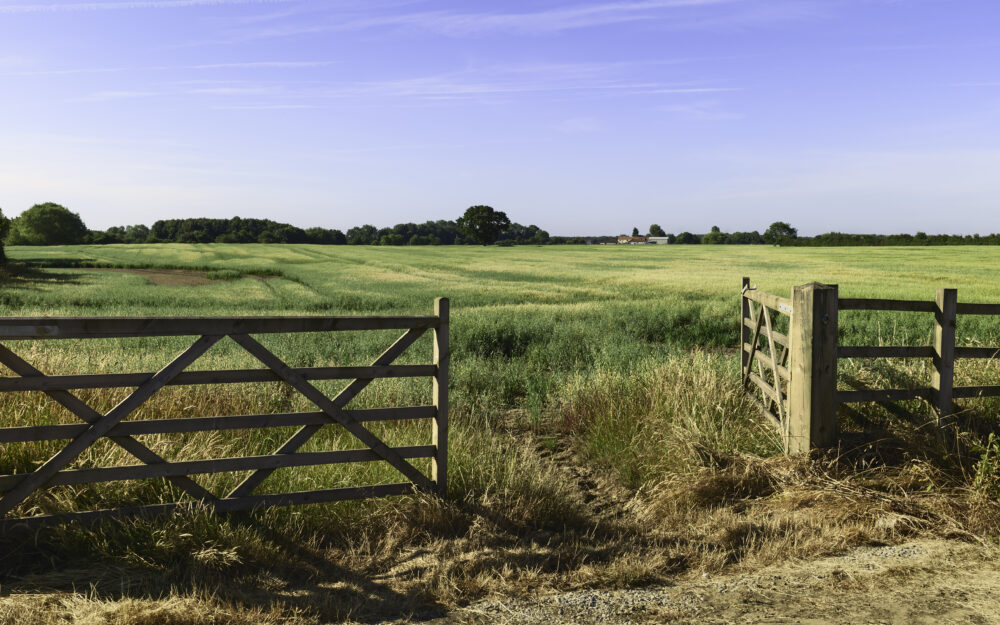We are pleased to report that Carol Ramsden from our Public Access Team has been successful in removing a Restricted Byway from a busy pig farm.
Achieving changes to routes of this status, which can be used by the public on foot, horseback, pedal cycle or other non-mechanical vehicle (such as a horse-drawn cart), are rare. This route ran through a farmyard, very close to farm buildings and open fronted pig pens. The Inspector agreed with our arguments that it was advantageous for the farmer to keep the public away from the working area for safety and security reasons, and acknowledged DEFRA guidance on the risk of disease being spread by people. This was despite objection from the Open Spaces Society which argued that the proposed route was contrived and less convenient for the public, and that the farmyard was a distinctive feature to be enjoyed along the route. This is an excellent outcome for the farmer, who now has a period of time to prepare the new route before the change takes effect in practice.
We continue to work for farmers, private landowners, developers, schools and others who need to achieve changes to the public rights of way network and we have an excellent track record for our work.
We had hoped – back in 2016 – that new public rights of way legislation in the Deregulation Act would give landowners a right to apply for changes over their land, making change faster and giving applicants more control over progress. Yet, with DEFRA’s attention focussed elsewhere, we are still working with legislation which makes the progress of an application very dependent upon the local District or County Council’s individual approach. In East Anglia and some other parts of the country, Councils will accept and deal with applications, recognising that the network needs to evolve to meet modern land management needs. Elsewhere we submit applications well aware that we are joining a five year queue for attention! In some counties we are told the backlog is so long only applications which implement planning permissions are being accepted. We maintain close links with the Councils nationally and appreciate the pressure front line officers are under, while pressing for action on our applications at every opportunity.
The process itself remains long winded and complex. We focus on building a strong legal basis for the changes our clients wish to achieve. We believe a good understanding of the needs of local parish councils, and of walking, riding and cycling organisations is also critical to success. It enables us to advise a client effectively and prepare applications for changes which – even if faced with formal objection and the need for a determination by the Planning Inspectorate – are highly likely to succeed.
The content of this article is for general information only. It is not, and should not be taken as, legal advice. If you require any further information in relation to this article please contact the author in the first instance. Law covered as at September 2019.









